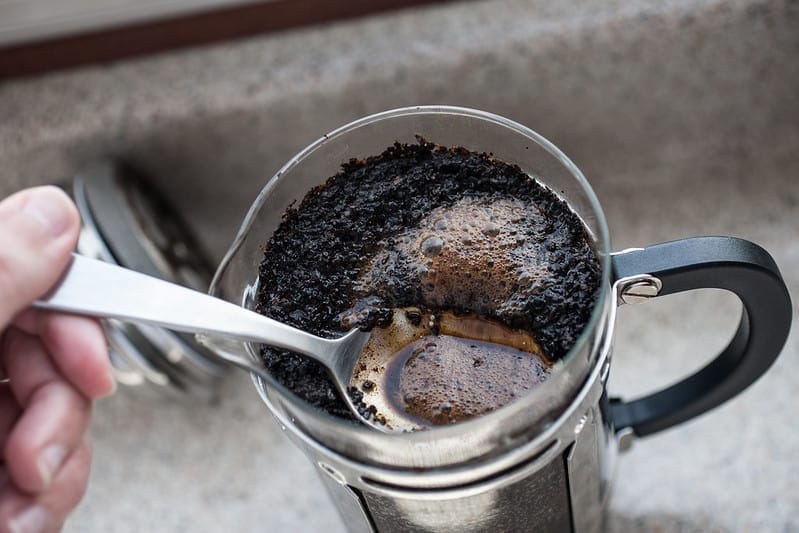
Coffee on its own does not raise blood sugar levels in healthy adults, but sugary coffee drinks can affect blood sugar levels. People with diabetes have different risks to consider and need to be aware of how caffeine interacts with insulin and what role caffeine consumption plays in controlling their blood sugar levels.
In this article, we are going to cover everything you need to know about coffee, caffeine, and blood sugar to help you make informed decisions about your coffee intake and diet. As always, you should consult your doctor if you have concerns about your health or if you’re considering changing your diet. There’s no substitute for professional medical advice.
Coffee and Blood Sugar Levels
According to the Mayo Clinic, drinking up to two 8-ounce cups of coffee per day has no noticeable effect on blood sugar levels in healthy adults. Two regular cups of coffee contain, on average, about 280 milligrams of caffeine, safely under the 400 milligrams deemed safe.
The Mayo Clinic also reports that some studies found evidence that regular coffee consumption reduces a person’s risk of developing type 2 diabetes. Those studies attribute the effect to chemical compounds in coffee and not caffeine since both caffeinated and decaffeinated coffee drinkers showed the same lowered chance of developing type 2 diabetes.
However, there’s a caveat. For individuals with diabetes, drinking coffee—or, more specifically, consuming caffeine—can disrupt insulin function and lead to changes in blood sugar levels. While 400 milligrams of caffeine per day is the recommended healthy limit for healthy people, 200 milligrams is recommended.
Everyone is different, and even two cups of average-strength coffee can be problematic for people with diabetes. The safest option for diabetic people is to cut coffee entirely or only drink one small cup per day. Ask your doctor for personalized recommendations tailored to your specific circumstances.

Caffeine, Diabetes and Insulin
A study examining the relationship between caffeine, insulin, and blood sugar found that diabetic people who consumed approximately the same amount of caffeine as you would get from drinking two cups of coffee had more variability in their blood sugar levels.
Specifically, the study broke diabetic subjects up into two groups, one taking two 250 milligram caffeine pills per day and the other a placebo. The caffeine pill group had 8% higher blood sugar levels than the placebo group on days when they did not take the caffeine pills.
The reason for this effect is how caffeine affects your body’s natural insulin sensitivity. Consuming caffeine kicks off a domino-like chain of chemical reactions in your body which ultimately means it doesn’t process sugar as effectively. Caffeine intake raises epinephrine levels, and epinephrine reduces your body’s insulin production.
Caffeine also blocks adenosine, a molecule that helps regulate insulin production. In combination, these two effects mean that caffeine reduces your body’s ability to produce and regulate insulin levels, which indirectly raises blood sugar. If you only drink coffee occasionally, the ups and downs of insulin sensitivity on days you don’t drink coffee cause blood sugar levels to fluctuate, making it difficult to monitor and treat diabetes.

Does Decaf Coffee Raise Blood Sugar?
Most of the impact coffee has on blood sugar levels comes from caffeine, but one study showed an acute rise in blood sugar after drinking decaffeinated coffee. The study concludes that drinking decaffeinated coffee increases blood sugar levels in the short term but to a lesser extent than drinking caffeinated coffee.
Drinking both regular and decaf coffee can actually help lower a person’s risk of developing diabetes in the long term. The short-term spike in blood sugar seems to be a transient effect and doesn’t change the fact that drinking coffee can reduce the risk of developing diabetes.
Conclusion
In healthy people, drinking both caffeinated and decaffeinated coffee has been shown to lower the chances of developing diabetes in the long run. However, for people with diabetes, drinking caffeinated coffee can disrupt insulin production and reduce insulin sensitivity, causing blood sugar levels to increase by almost 10%.
Decaffeinated coffee causes a short-term spike in blood sugar levels, although the increase is less dramatic than caffeinated coffee. If you are concerned about your blood sugar levels and how they relate to drinking coffee, consult your doctor.
Featured Image Credit: Chris Benson, Unsplash














